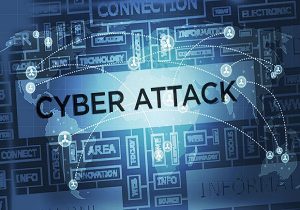How Nigerian businesses can prevent and combat cyberattacks
May 9, 2023285 views0 comments
By Cynthia Ezekwe
The growth of the information and communication technology environment has increased the proliferation of cyber attacks in organisations, businesses, and financial institutions, as cyber criminals scale up their attacks, taking advantage of businesses and causing havoc to the global economy.
According to the World Economic Forum (WEF), cybercrime has grown to become the world’s third-largest economy after the US and China.
Warren Buffet, a renowned businessman and philanthropist described cybercrime as the number one problem with mankind. Buffet opined that cyberattacks has become a bigger threat to humanity than nuclear weapons as a result of the daunting effect it has on individuals, countries, organisations, companies, financial institutions, and countries.
Read Also:
A cybersecurity report by University of Portsmouth,showed that in 2020, the global economy lost $945 billion to cybercrime, and this number is expected to steadily increase.
 Cybersecurity Ventures, a cybercrime magazine, further projected that cybercrime would cost the world $10.5 trillion annually by 2025.
Cybersecurity Ventures, a cybercrime magazine, further projected that cybercrime would cost the world $10.5 trillion annually by 2025.
Cybercrime has also taken a toll on the Nigerian economy. In 2018, commercial banks in Nigeria lost a cumulative N15 billion, to electronic fraud and cybercrime. This was a 537 per cent increase on the N2. 37 billion loss recorded in 2017.
The Federal Bureau of Investigation (FBI), in its assessment of the infiltration of cybercrimes in Nigeria, ranked the most populous African country 16th place among the countries most affected by cybercrimes in 2020.
To this end, Oluwasolape Akinde, head, governance,risk and compliance (GRC) at Seven-Up Bottling Company, charged organisations, businesses and financial firms to adopt best practices to strengthen cyber security and create a more secure digital world.
Akinde, who stated this during a presentation at a hackathon event organised by Eko Innovation Centre, highlighted the various strategies that can be adopted in strengthening cybersecurity.
The IT expert laid emphasis on the need for businesses to develop a comprehensive cyber security strategy. He also encouraged organisations, companies and financial institutions to adopt comprehensive cyber security strategies that will proffer fail-safe solutions in the case of any cyber attack
“Educate your employees and stakeholders; sensitise your workers and stakeholders about cyber security. Like I said, you don’t educate your excos and leave your cleaners, and drivers; everybody has a role to play, as they have access to offices more than some staff in the organisation,’’ he said.
Akinde also advised organisations, businesses, and financial institutions on the need to regularly update their software and hardware components, stating that doing so enables businesses to identify and respond to threats more quickly. He added that backing up critical data enables data stored earlier to assist businesses in recovering from an unplanned event.
“Regular security assessment in your organisations is vital. Assess the activities from time to time to know the level of efforts you are putting in ensuring a strong cyber security in all the online activities, find out the trends, the measures that need to be adopted, and things that need to be put in place,’’ he said.
Akinde further advised that investing in cyber security talents and young startups who are enthusiastic and passion-driven to boost cybersecurity is a step that every organisation has to take, stating that it will encourage the upcoming generations and enlighten other youths about cyber security through their platforms, activities, and products.
